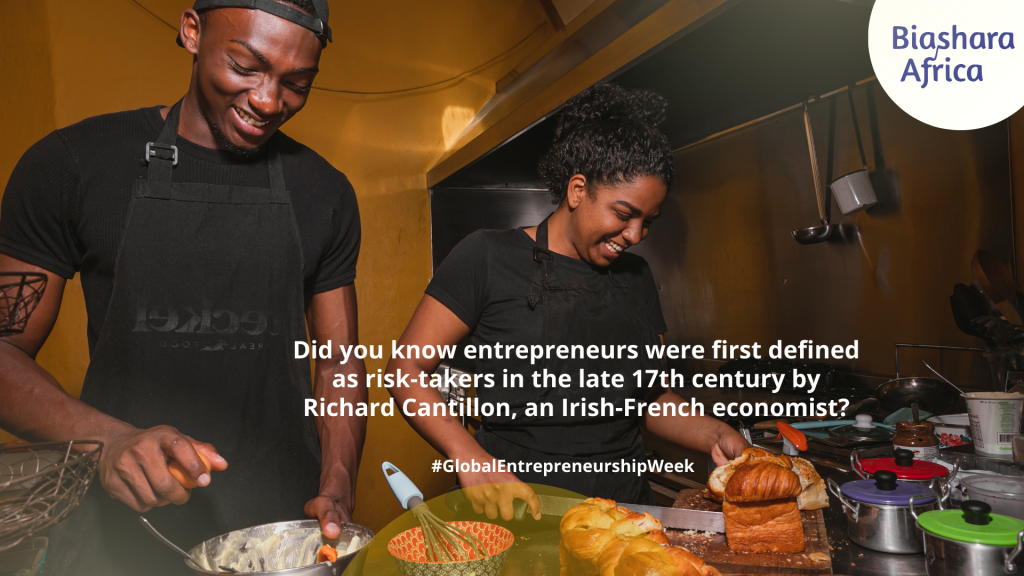Date: 14.11.2023 | Nairobi
Happy Global Entrepreneurship Week!

Entrepreneurs are individuals who start a business, taking a financial risk in the hope of profit.
.
As the world celebrates Global Entrepreneurship Week, we shine a spotlight on the significant contribution of women and youth-owned small businesses. These entrepreneurs play a crucial role in driving economic growth, fostering innovation, and creating opportunities for themselves and their communities. Despite facing numerous challenges, they continue to persevere and make a positive impact on the global economy.
Older adults tend to embrace entrepreneurship, it is indicated that 60% of small businesses are started by people between 40 and 60 years of age.
In many parts of the world, women and young people are often underrepresented in the business world, facing barriers to access finance, markets, and resources. According to the World Bank, women entrepreneurs make up a substantial portion of the small and medium-sized enterprise (SME) sector, contributing to job creation, poverty reduction, and social empowerment.
These businesses are known to mainly contribute to the Sustainable Development Goal (SDG) SDG 1: No Poverty, SDG 2: Zero Hunger, and SDG 8: Decent Work and Economic Growth.
.
The Kenyan ruling government’s Bottom-up Economic Transformation Agenda (BETA), aims to utilize the Micro Small and Medium Enterprises (MSMEs) sector as a driving force in generating employment and livelihood opportunities, with a specific focus on empowering the poor and marginalized groups such as women, youth, and persons with disabilities.
It is estimated that there are 582 million entrepreneurs worldwide, that means about 5% of the global population are entrepreneurs.
.
The contribution of Small businesses
Small businesses are a vital source of employment and livelihood in Africa, with over 80% of firms and 60% to 70% of employment being generated by these enterprises. However, despite their importance, small businesses face significant challenges, with over 70% of them failing within the first five years due to factors such as low sales/revenue, informal operations, and lack of data/records. Women and youth-owned small businesses are particularly vulnerable, with three times the likelihood of closure compared to others.
.
The challenges of Women and youth-owned small businesses
A World Bank Group report on improving access to finance for SMEs (May 2018) highlights that SMEs in least-developed regions like Kenya face significant financing obstacles and initiatives that provide loan programs to women have shown promising results, with income increases of 100% to 400% within the first six months. Women and youth-owned small businesses are particularly affected, facing difficulties in obtaining funding and information needed for growth as reported by the International Trade Centre in a 2019 survey.
.
Our Work and Impact
At Biashara Africa, we are committed to addressing these challenges by empowering women and youth-owned small businesses to access markets and financing. Through our efforts, we aim to create sustainable livelihoods and generate employment opportunities, reducing the vulnerability of these businesses and contributing to the growth of our economy. Learn more about our work on https://biashara.africa
.
About Global Entrepreneurship Week
Global Entrepreneurship Week is a global celebration of enterprise and entrepreneurial people (entrepreneurship) that occurs in the second week of November, from November 13–19 this year. During this week, people from various countries worldwide come together through local, national, and global events to create solutions for worldwide economic growth. Learn more on https://www.genglobal.org/
